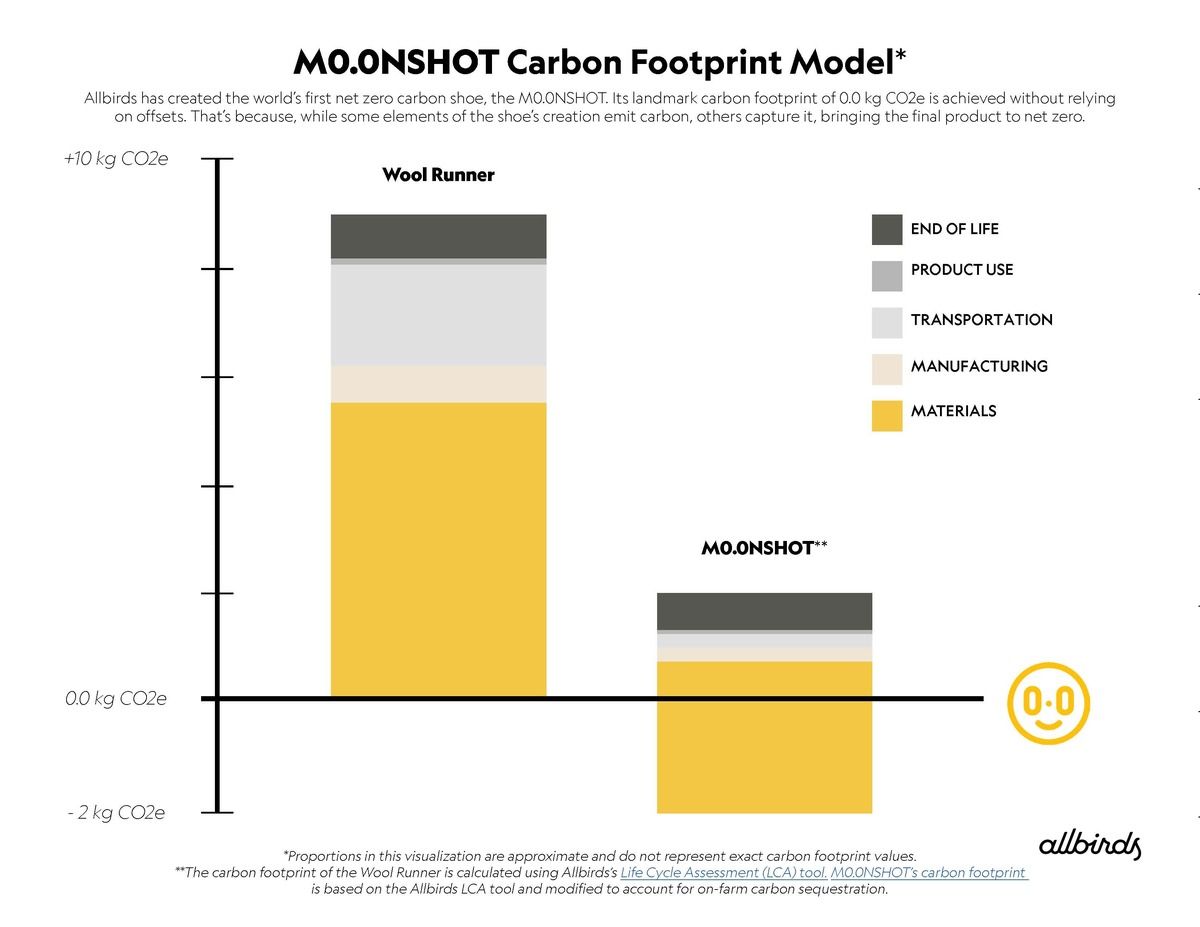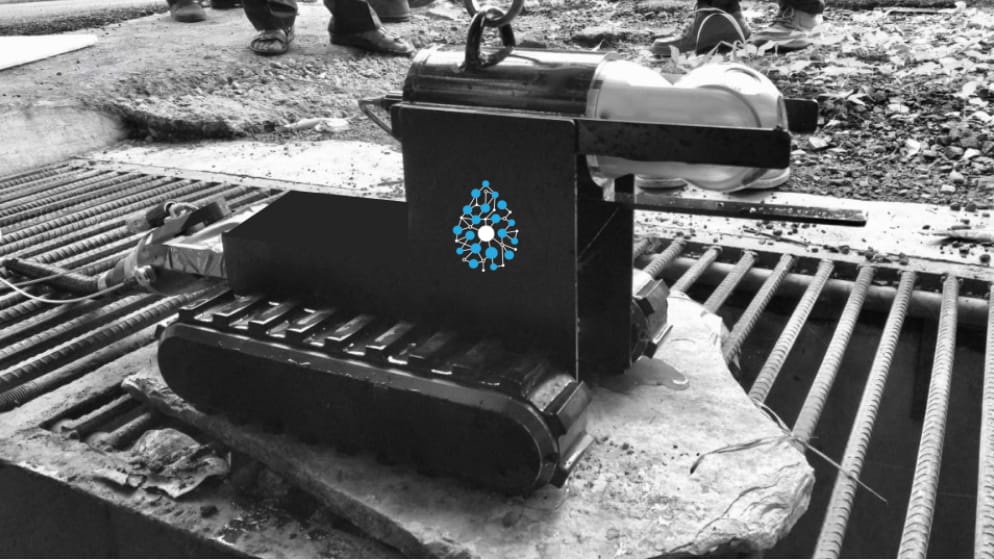In today’s edition:
🚗 Zero-emission cars in Europe
🏔️ National park creation
💧 AI tackling water pollution
Forwarded on this email by a friend?
📩 Submit deals, announcements, events & opportunities, or general curiosities for the newsletter here.
💼 Big Business (1-minute read)
Allbirds touts the world's first net-zero carbon shoe
Allbirds claims it has created the world’s first net-zero carbon shoe without offsetting. The shoe’s upper is made using carbon-negative merino wool from the New Zealand Merino Company. The Company uses regenerative farming methods to enable the soil to draw down carbon with carbon sequestration outweighing emissions. Other carbon-negative elements of the shoe include bioplastic eyelets made using methane-based polymers and sugarcane-based foam midsoles. Any emissions from transport are ‘inset’ - balanced off with carbon drawn down in the components used to create the shoe.
Sharing is caring: The company has pledged to open-source the design and the carbon accounting methods used to help other brands in the sector innovate to reduce emissions.

German deal moves EU towards zero-emission cars
After a month of negotiations, the European Union is set to agree on landmark rules requiring new cars to have zero emissions after 2035 — essentially banning the sale of combustion engines in the bloc.
Complex solution: Germany threatened to block the new law just before the final vote due to the prospect of job losses in the country with a complete transition to electric vehicles. So, after lobbying the EU, cars running on “e-fuels” made with captured CO2 and hydrogen produced from renewable or low-carbon electricity will be exempt from the ban.
Criticism: Green groups, EU member states (e.g. France) and manufacturers (e.g. Volvo) have criticised the German move to exempt e-fuels, claiming they are an expensive diversion from the transition to EVs facing Europe’s carmakers.
Patagonia campaign sees a National Park declared in Albania
Following a long campaign by clothing retailer Patagonia, alongside the Albanian government, the Vjosa River — one of Europe’s last remaining large wild rivers — has been declared a national park, meaning it receives special protections against construction activities to help conserve the 1,100 species of animals (including the endangered Balkan lynx and Egyptian vultures) that live in and around the river.
💡 Start-Up Spotlight (1-minute read)
Fluid Robotics
One liner: Wastewater analytics company helping cities tackle urban water pollution.
Problem space: In India, the current urban water distribution and wastewater treatment network is inefficient, with 40-50 per cent of water lost in distribution due to leaks and illegal taps (Non-Revenue Water). Under 20 per cent of wastewater is collected and treated, while the rest pollutes groundwater, lakes, rivers, and coastlines. In addition, inadequate data on water loss and pollution forces local governments to further build dams and source ‘new’ water, directing resources away from redeveloping and maintaining the city’s water infrastructure. This is a typical story in developing nations around the globe.
Deep Dive: Fluid Robotics uses AI-powered solutions to diagnose water and wastewater pipeline networks to address the growing urban issues of water loss and water pollution.
They have two main offerings:
Hardware - Wastewater Surveillance Robotics: multi-sensor robots and drones that inspect pipes and water systems. The robots navigate through pipes and can inspect water quality, and flow, and map underground networks.
Software - AI Pipeline inspection: AI is used to process data collected by the robots (e.g. hundreds of hours of pipeline videos) in a fraction of the time compared to manual methods. AI capabilities are also used to monitor data of water operators to run diagnostics and predict when water systems are likely to fail and are in need of repair. The company is consistently delivering additional novel software use cases. For example, AI models for crop identification and water source identification. This allowed the company to process around 1,00,000 acres of farm data in a short amount of time to calculate Unaccounted For Water (water loss calculated as the difference between water fed into the distribution system and the water actually used) in the region.
Combined, these solutions are being used to help cities maximise water reuse by preventing pipe breaks and minimising water pollution by identifying contaminants at the source.
Impact:
1.5Mn+ Feet of Sewer Inspections in 2021/22; 1.3Bn+ Litres of Urban Pollution Monitored; 12.5Mn+ Population monitored for Infectious Diseases
Location: Pune India
Latest Funding: Seed rounds
Revenue sources: Robot-as-a-Service business model, wherein the company charges based on project scope or through subscriptions.
Founders: Nidhi Jain, Asim Bhalerao

💰 Deals of the Week (1-minute read)
🔋 Amogy Raises $139M Series B-1 Funding for their emission-free, energy-dense ammonia power solutions
🍎 TripleW raised $16.5 million Series B to produce lactic acid and bioplastic from food waste
⚡️ Piclo plucks £8.3 million Series B for flexibility marketplace, which was developed to decarbonise the grid by enabling system operators to procure, dispatch and settle local flexibility services from flexibility service providers like electric vehicles and batteries.
🌾 Vertical farming startup Harvest London has raised an unknown amount of early-stage investment from Foresight Group to build vertical farms in London
💭 Little Bytes
Quote: “We’ve designed a very aggressive rule to ensure that everyone that’s contributing to this problem has some full accounting for that.” Michael Regan, the administrator of the US Environmental Protection Agency, referring to regulations to control methane emitted from oil and gas infrastructure.
Stat: 40% of US electricity now comes from carbon-free sources — WEF
Watch: A portable pump that supplies safe drinking water in disaster zones
🗞 In other news…
Why investing in water is at the heart of empowering women
China Energy announces plans $1bn floating solar farm, which would include over 1.8 million photovoltaic panels, on Lake Kariba in Zimbabwe — the initiative comes with Zimbabwe suffering acute electricity shortages resulting in 12hr blackouts.
Clean up underway following an oil spill at UK’s Poole Harbor, the largest onshore oil field in western Europe, which could threaten rare birds at a nearby sanctuary.
Brazil is looking to startups and climate tech in their quest to reforest the Amazon, with companies replanting millions of hectares and generating revenue through carb credits.
🎣 Gone Phishing
Three of these stories are true. Guess which one we've made up...
Hell’s Kitchen reveals new menu based on seaweed and mushrooms
“Museum of Failure” celebrates bad ideas and overhyped products
Dumpster-diving moose saved from rubbish bag
MIT tests 1,000 different ways to eat an Oreo cookie
